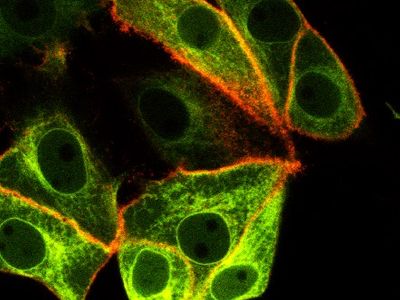Models and equations describing the transport of water, ions and nutrients within cells and through cell membranes. Active and passive transport. Channels and carriers. Cell electrical potential (graded and action potential). Methods for measuring cellular physical parameters.
Lectures (24 hours), laboratory exercises (32 hours), hand-in assignment
Laboratory exercises:
- measurement of diffusion in an aqueous solution that mimics cytoplasm (fluorescent microscopy)
- measurement of diffusion in cell membranes (living cells, confocal microscopy)
- measurement of changes in cell volume (living cells, confocal microscopy)
- measurement of changes in cell membrane potential (living cells, confocal microscopy)
